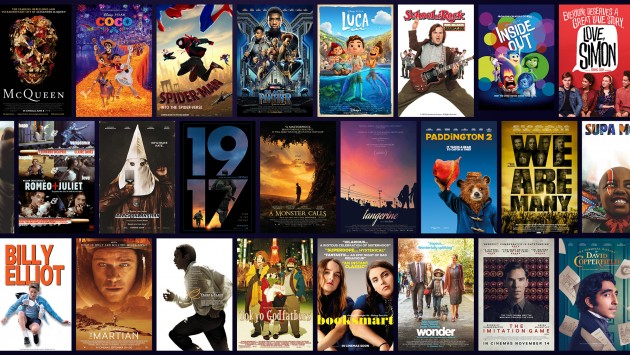The intersection of art and spirituality often reveals the profound truths that govern human existence. Such is the narrative woven by the film producer Steve Sarowitz in his cinematic endeavor, *The Gate*, which delves into the life of Baha’u’llah, the founder of the Baha’i Faith. This illustrious undertaking serves as a depiction of the transformative power of faith within the fabric of society. In illuminating the vibrant teachings of the Baha’i Faith, Sarowitz offers an intriguing metaphor for spiritual enlightenment amidst contemporary challenges.
The Baha’i teachings are steeped in principles that promote universal peace, the oneness of humanity, and the importance of personal spiritual growth. *The Gate* represents an artistic manifestation of these ideals, drawing audiences into a reflective dialogue. Steve Sarowitz, as a producer, undertakes the responsibility of bringing forth a narrative that transcends mere entertainment, inviting viewers to contemplate the spiritual underpinnings of life.
At its core, *The Gate* serves as a beacon—a metaphorical lighthouse—illuminating the treacherous waters of ignorance and misunderstanding that often plague human society. Just as a lighthouse guides sailors to safety, the film seeks to guide individuals toward a deeper understanding of their spiritual essence and purpose. The compelling storytelling, coupled with the evocative cinematography, engenders a sense of connection to the historical and spiritual legacy that Baha’u’llah embodies.
The genesis of Sarowitz’s project reveals the intricacies involved in blending the realms of spirituality and filmmaking. The pursuit of truth is daunting. It demands vulnerability, perseverance, and an unwavering commitment to deliver authenticity. Sarowitz’s approach reflects the Baha’i principle of consultation, which encourages diverse perspectives and collaborative dialogues. In curating *The Gate*, he meticulously gathered a team of talented individuals who were equally invested in interpreting Baha’u’llah’s message. This collective effort exemplifies a vital Baha’i teaching: that progress is achieved through unity and cooperation.
In articulating the narrative elements of *The Gate*, one observes the thematic interplay of sacrifice and redemption. The film chronicles the life of Baha’u’llah during a tumultuous period marked by persecution. Sarowitz encapsulates the essence of these challenges, using them as a backdrop to illustrate how faith can serve as an anchor in times of adversity. Baha’u’llah’s teachings emphasize the inherent nobility within each individual. Through the protagonist’s journey, viewers are reminded that amidst turmoil, one can cultivate resilience rooted in love and compassion.
Moreover, the film challenges audiences to transcend the limitations of their perspectives. This is akin to the Baha’i concept of “progressive revelation,” which posits that spiritual truths unfold over time and are meant to be embraced in a dynamic manner. Sarowitz’s cinematic portrayal invites viewers to engage with Baha’u’llah’s life as an ongoing narrative, rich with layered interpretations and understandings that evolve. In essence, *The Gate* articulates the invitation to explore deeper spiritual insights that lie beyond the surface. This aligns seamlessly with the Baha’i commitment to continuous learning and growth.
Additionally, the production process itself became a testament to the core values advocated by the Baha’i teachings. Throughout the making of the film, inclusivity was prioritized, reflecting the principle of oneness. Each voice was valued, regardless of their background or beliefs. This resonant synergy among the filmmakers serves as a microcosm of the larger Baha’i aspiration for global unity. By harnessing diverse talents and viewpoints, Sarowitz and his team were able to create a film that resonates across cultural boundaries. This collective artistic expression affirms the universality of Baha’u’llah’s message, which aims to bridge gaps between differing peoples and ideologies.
As the audience engages with *The Gate*, there exists an opportunity for personal introspection. The film acts as a catalyst for contemplation regarding one’s own spiritual journey. Sarowitz imbues the narrative with poignant moments that challenge viewers to reflect on their connection to the divine and to one another. In this way, the film aligns with Baha’i teachings about the transformative power of self-reflection and the quest for truth. It poses essential inquiries about responsibility, love, and the obligation to contribute positively to society.
Ultimately, *The Gate* emerges as a cinematic odyssey—a testament to the enduring spirit of humanity confronted with an array of trials. Sarowitz’s masterful storytelling not only unveils the life of a significant spiritual figure but also underscores the universal quest for meaning that all individuals share. By illuminating the teachings of Baha’u’llah through the lens of film, he cultivates a narrative that resonates on both a personal and collective level. This portrayal compels audiences to reconsider their roles within the greater tapestry of humanity and the spiritual evolution ongoing within each individual.
In conclusion, the artistic venture undertaken by Steve Sarowitz manifests as a profound exploration of Baha’i teachings, encapsulating the beauty of unity and the transformative power of faith. *The Gate* stands as an enduring invitation—beckoning individuals to venture forth into a journey of enlightenment and interconnectedness. As we navigate the complexities of modern existence, let us glean insights from Sarowitz’s portrayal, embracing the rich virtues espoused by the Baha’i Faith that compel us toward a more harmonious and peaceful world.
